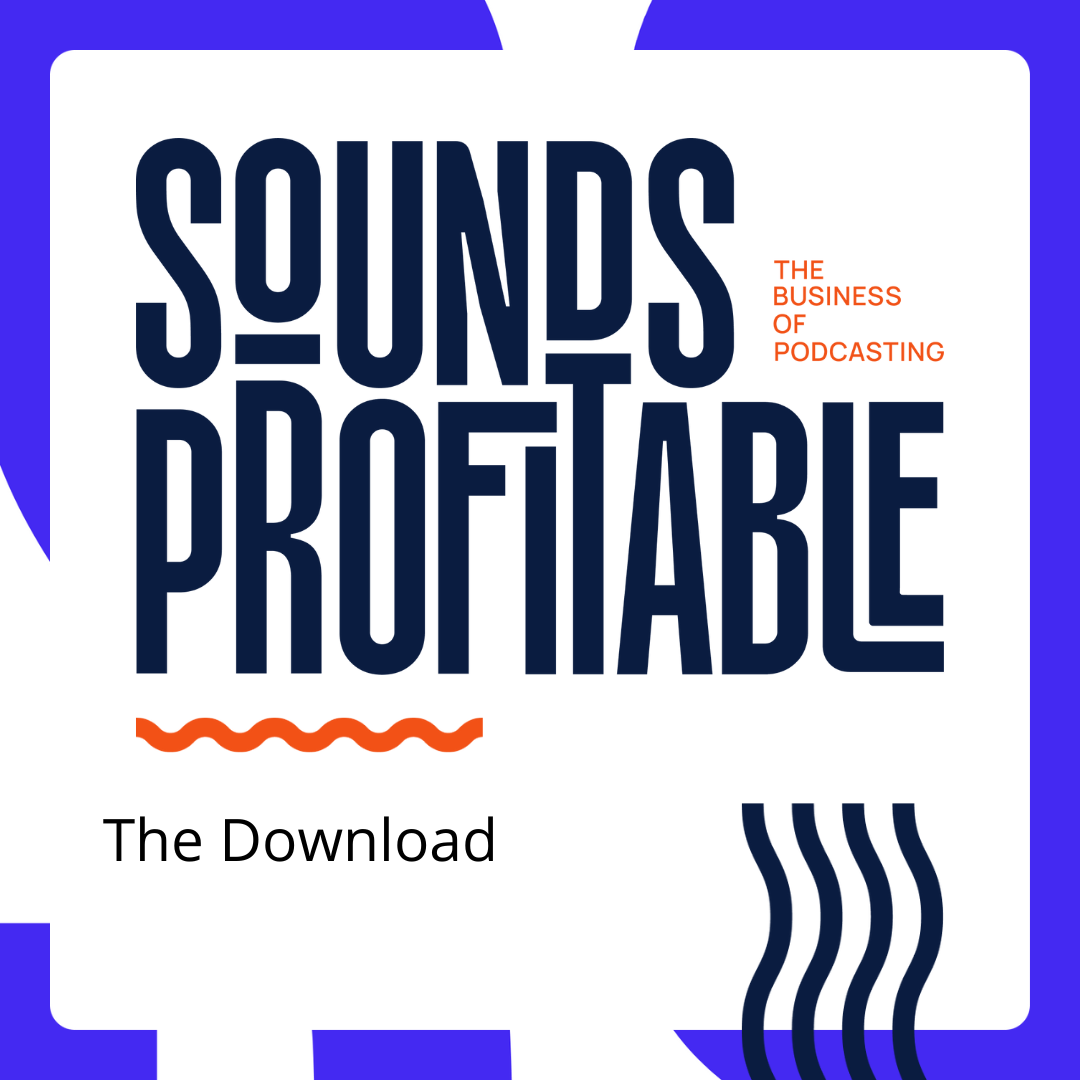This week: Spotify layoffs, TikTok Podcasts feature spotted in the wild, exclusivity deals seem to be losing luster, and Buzzsprout launches premium subscriptions.
Let’s get started.
Spotify lays off six percent of workforce.
Manuela: We start today on a dour note, but it’s the largest story to happen this week and bears covering. This Monday Spotify CEO Daniel Ek announced the company is downsizing six percent of its workforce. Chief Content and Advertising Business Officer Dawn Ostroff is also leaving the company. Todd Spangler’s coverage of the announcement for Variety does the math on what six percent actually means.
“The layoffs will eliminate nearly 600 jobs; Spotify most recently reported having 9,800 full-time employees worldwide as of Sept. 30. The company estimated that it will incur approximately €35 million-€45 million in severance-related charges.”
In the Tuesday issue of Podnews, editor James Cridland notes that in addition to the layoff announcement, Spotify’s job website has removed all open full job positions. As of this writing the site only has 23 open positions, all of which are internships. From Spangler’s article:
“Employees who are getting laid off will on average receive about five months’ salary in severance payments, per Ek’s memo. In addition, all unused vacation time will be paid out to any departing employee, and all terminated employees will be eligible for outplacement services for two months.”
Ostroff was a big name behind a lot of Spotify’s big-ticket podcasting acquisitions. Between her departure and the overall downsizing, this news seems to signal Spotify is down-shifting into treating podcasts like it has treated music. It’s not necessarily the end of Spotify expanding into podcasting, but they likely will be focusing on expansion without owning content.
New TikTok Podcast feature appears
Arielle: Last Wednesday Sydney Bradley and Dan Whateley of Business Insider published new details in the months-long windup to TikTok officially getting into podcasting.
As covered as far back as the October 10th episode of The Download, there has been a breadcrumb trail of evidence the social media platform has intentions of launching some form of podcast listening application. In December of 2021 TikTok users were prompted to complete a survey gauging user interest in both listening to podcasts and creating podcasts. In May a trademark was filed for an application called TikTok Music, which listed podcasts as a form of audio that could be played in-app.
Then, this last October, Podnews got word bots associated with TikTok’s parent company were spotted scraping publicly-available RSS feeds. Clearly TikTok was up to something.
Now, Business Insider has discovered an unannounced feature has been added to some TikTok accounts allowing users to play video hosted on TikTok as a podcast, a distinction which allows users to browse other apps or lock their phone while the audio continues to play. This is a similar functionality to one YouTube has had for Premium subscribers for years and last year was testing enabling it for all users to promote podcasting listening in certain markets.
As Bradley and Whateley’s reporting suggests, once podcasts are implemented, TikTok could be primed to become a serious Spotify competitor.
Exclusivity deals lose appeal
Manuela: Last Friday Tyler Aquilina , writing for Variety, published a piece that became somewhat prescient in hindsight: Circling back to the topic of podcast companies expanding by acquiring podcasts: Podcast Exclusivity Is Quickly Becoming an Outdated Strategy. From the intro of the article:
“If it’s still too early to declare platform-exclusive podcast deals dead as we move into 2023, it’s becoming ever clearer that this business model is likely not long for this world.”
Aquilina’s piece presents several data points suggesting the exclusive podcast strategy, most typified by Spotify acquisitions in recent years, is falling out of favor. The article cites reported frustrations from producers who signed big-name deals and went exclusive, including the Obamas choosing not to renew their exclusivity deal with Spotify last year.
One interesting data point is that of the Rogan Twitter Bump, the short-term engagement boost relatively smaller guests on The Joe Rogan Experience get in the week after appearing on the podcast. According to data collected from Social Blade by The Verge, JRE guests with fewer than 500,000 Twitter followers started to experience far smaller influxes of new followers starting December 2020, the month JRE went Spotify-exclusive. Conversely, podcasts that leave exclusivity to wide release are reporting more success in open podcasting. Aquilina reports he was given data from Acast that shows Spanish-language podcast Se Regalan Dudas has seen its listens increase 56% over their first year after leaving Spotify exclusivity. From the end of Aquilina piece:
“Podcasting remains a growth business, even if that growth is decelerating. But as in any maturing market, business practices must shift with the times — and in this case, that means the walled gardens are going to start opening up soon.”
Buzzsprout to implement premium subscriptions
Arielle: Back on January 12th we reported on Apple launching Delegated Delivery, a feature from which several podcast hosting providers can allow their users to upload content to their Apple premium podcast from the dashboard of said host.
The initial rollout included Blubrry, Libsyn, Triton Digital’s Omny Studio, and RSS.com, with Acast, ART19 and Buzzsprout named as the next in line to get the feature in the coming months.
In a surprise twist, this week Buzzsprout announced their own premium podcast subscription offering. Dubbed Buzzsprout Subscription, the feature allows podcasts hosted on the platform to process payments from subscribers. Currently, users can choose between a Patreon-style pricing structure that gives audience members custom incentives, such as a shoutout in an episode, to a more Apple-like paywalled feed.
Revenue collected from the subscriptions can be applied to pay for Buzzsprout hosting fees or converted to cash via a Paypal transaction. As it stands, Apple Podcast Subscriptions pay out 70% of their revenue for new subscribers, with the revenue share going up to 85% payout for subscribers who have stuck around for a full year. According to Tuesday’s Podnews, Buzzsprout Subscriptions is a flat 85% payout.
With this new feature implementation, as well as the availability of Buzzsprout Ads, it’s becoming far more difficult to think of a reason why someone hosting on Buzzsprout would need to leave their dashboard to accomplish something for their podcast elsewhere online.
Arielle: Finally, it’s time for our semi-regular roundup of articles we’re calling Quick Hits. These are articles that didn’t quite make the cut for today’s episode, but are still worth including in your weekend reading. This week:
AdTheorent Is Using Machine Learning To Predict Effective Inventory by Allison Schiff for AdExchanger. In which Schiff breaks down a new application that uses machine learning to score programmatic inventory based on probability the impression will lead to a desired outcome. Application of this tool to podcasting, or any media, would be incredibly interesting.
Here are the brands starting 2023 with new CMOs by Minda Smiley for MarketingBrew. While there are no directly podcasting-related companies getting new CMOs in this article, new CMOs often mean new perspectives and interest in new channels. Don’t be surprised if your kids are listening to a Chuck E Cheese branded podcast by this time next year.
P&G looks to replicate $65m success after taking media planning, buying in-house in fabric care by Julia Cannon for Digiday. A piece covering Procter & Gamble’s in-house media planning and buying strategy saving millions over a year. Brands bringing things in-house means fresh eyes and direct access. More contacts overall, but direct to the people that it matters to.


 "
"



